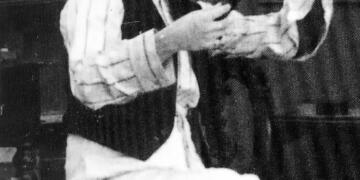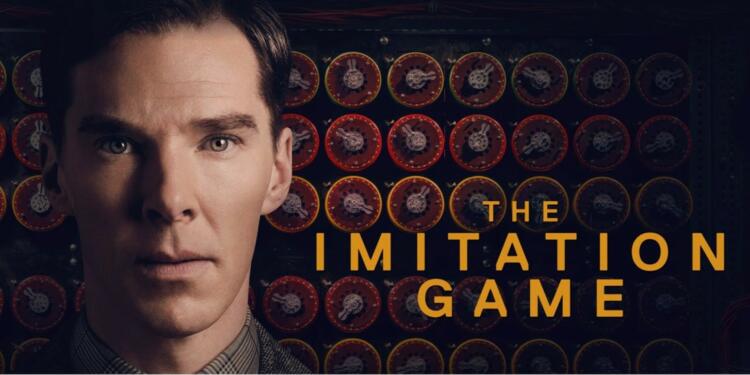The Imitation Game Review: It is a sorry state of affairs if you judge a person based on his personal choices rather than his work and contribution. But unfortunately, we live in a hypocritical world where a large section openly or covertly indulges in ‘cancel culture’ and the majority gives silent consent to it. Under this reprehensible trend, all it takes is one supposedly ‘bad deed’ to write off a plethora of good deeds. It doesn’t matter how inconsequential the bad deed may be. The injudicious story of the Hero of World War 2, Alan Turing, is the prominent example of this inglorious trend.
The Imitation Game- Widely accepted movie
In 2014, American historical drama film, ‘The Imitation Game’, hit the theatre screens for the global audiences. It was based on the biography of British Mathematician and Computer scientist Alan Turing. Notably, he changed the course of World War 2 by decrypting the German intelligence messages. The film starring Benedict Cumberbatch as Alan Turing drew its inspiration from ‘Alan Turing: The Enigma’.
The Hollywood film ‘The Imitation Game’ had Keira Knightley, Charles Dance, and Mark Strong as the supporting star cast. On analysing, it is clear that even after taking cinematic liberty, the film has tried to do Justice with historical facts of World War 2. Further, Benedict Cumberbatch has pulled one of the best performances of his rich acting career. He has perfectly depicted the struggle and identity crisis of Alan Turing even going as far as imbibing his personality traits.
Thanks to the superb acting skills and engaging screenplay, the Imitation Game was well received both by critics as well as the global audiences. Made with a budget of $14 million, the movie collected over $233 million globally. It became the highest-grossing independent film for Hollywood in 2014. The film won an Oscar award for the best adapted screenplay. It also received the People’s Choice Award at the 39th Toronto International Film Festival.
Also read: Midway takes the cake in the glorious list of badly made WW2 movies
The chronicles of Alan Turing
Right from his childhood, he was a socially awkward person and was bullied in boarding school. He struck up a friendship with Christopher Morcom who introduced him to puzzles and cryptography. In the meantime, Alan was romantically attracted towards Christopher but was left heart-broken when Christopher died young from tuberculosis.
Later, in 1939, he travelled to a secret location in Bletchley Park to support his motherland, Britain. By then the United Kingdom had declared war against Nazi Germany. Initially, the head at Bletchley Park tried to shun him away. However, he was left shocked when Alan Turing mentioned the notorious but secret Nazi encrypting machine ‘Enigma’.
The the Imitation Game movie nicely chronicles the ups and downs of Alan Turing both on the personal as well as professional front. It showcases how he becomes a crucial member of the Enigma deciphering team. It also analyses how he accommodated changes on Joan Clarke’s advice. He even decided to marry her to save her career. It was significant as Alan Turing was gay, which later became the reason for them to drift apart and became the major cause of trouble in his life after the war ended.
Also read: Why is Avatar the worst movie in Hollywood’s history?
Injustice
Had it not been for Alan Turing or his machine, the war would have lasted for years with Nazis enjoying the upper hand due to their Enigma machine. But what did the war hero get in return from the United Kingdom? All throughout the journey of making the machine and after the war, Alan Turing had to suffer just because of his sexual-orientation. He was repeatedly threatened, bullied, socially ostracised and pushed into solitude for being gay.
Evidently, in 1952, he was CONVICTED, as back then Homosexuality was a grave offense. It didn’t matter whether Alan was a war hero who saved millions with his dedication, work and genius. He was a criminal in the eyes of the British who knew that Alan had already taken away the Nazi sword that hung over their necks.
To boast about their liberal traits, the British offered Alan to either rot in prison or undergo chemical castration. How compassionate!
The American movie the Imitation Game ends at a perfect note revealing the brazen injustice meted out towards Alan which he couldn’t endure. Reportedly, he was found dead on June 7, 1954.
Ironically, even in the 21st century, the Brits considered Alan as some sort of a criminal. In 2013, Queen Elizabeth II of the UK awarded a posthumous Royal Pardon to Alan for saving their lives. Again, how considerate!
But the sorry state doesn’t end there. On account of him being gay, a fact that have nothing to do with common folk or government or whatever, he has been neglected and left to oblivion.
Support TFI:
Support us to strengthen the ‘Right’ ideology of cultural nationalism by purchasing the best quality garments from TFI-STORE.COM































